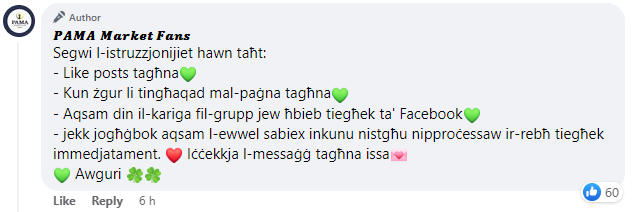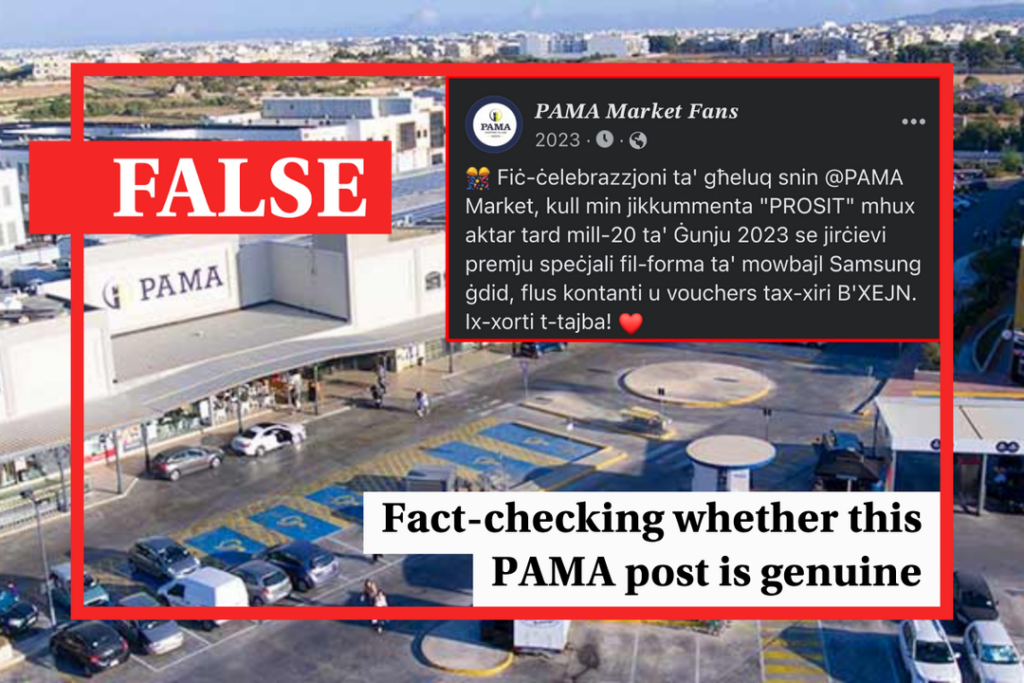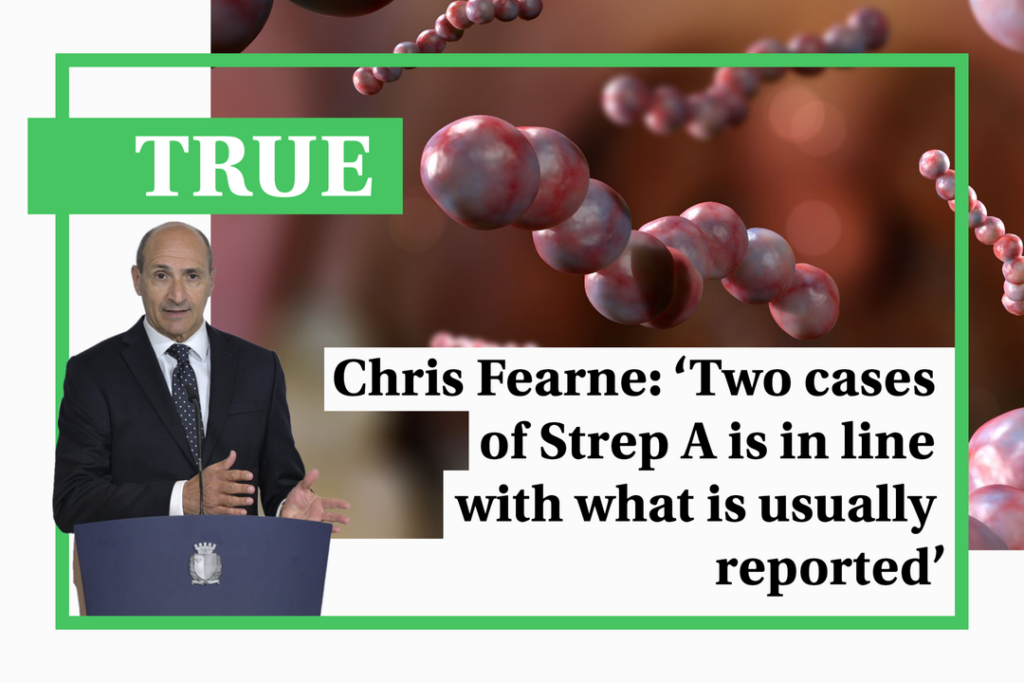A Facebook post claiming to celebrate the 20th anniversary of a local supermarket called PAMA went viral on social media on Wednesday, with thousands of users sharing the post.
The post offers people the opportunity to win a new Samsung phone, cash or shopping vouchers by following a few simple steps, including commenting on the post to say “well done (prosit)”, liking and sharing the post, and following the page.

At the time of publication, thousands of people had followed these instructions, many of them congratulating PAMA on its service and sharing the post to their own profile or to other Facebook groups.
The post does not appear to ask users to make any payments, transfer any money or share any personal information.

Readers who came across the post contacted Times of Malta to verify whether or not it is genuine.
A closer examination of the post reveals that it is not genuine and was originally posted by a hoax page that is not related to PAMA.
The page which issued the post, called PAMA Market Fans, was set up earlier on Wednesday morning and quickly gained hundreds of followers. This is the only post ever issued by this page.
Speaking to Times of Malta, PAMA Deputy CEO Malcolm Camilleri confirmed that both the PAMA Market Fans Facebook page and the post in question are completely unrelated to PAMA.
“This is not the first time that a similar scam has been shared. We encourage our customers to always visit PAVI and PAMA’s official social media pages to verify whether or not a post is true.”
How do these hoaxes work?
It is not unusual for hoax websites, pages or posts that initially appear to be harmless, such as this one, to go viral.
These hoaxes aim to be as widely shared and to gain as many followers as possible in a short period of time.
Once the post or page has gained many followers, the scammer returns to the post and edits it to advertise a scam designed to steal personal data such as credit card details, addresses or other personal information. These scams may include a crypto scam, a pyramid scheme or a property listing, amongst other things.
By editing the post, it retains all the comments, shares and likes that it had gained before it was edited. This makes the scam appear more legitimate, making it more likely to dupe unsuspecting readers into sharing their personal information.
Times of Malta has previously debunked similar scams using false stories about an injured dog and a missing child.
How can you spot a hoax?
Close observation of such posts often reveals several tell-tale signs suggesting that the post may be a hoax.
- The post appears to have been posted by a fake profile. Examining the profile of the person who posted may reveal that it is a brand new account that has never posted before and does not have any connections to other genuine social media accounts.
- Comments have been disabled. This is often done to prevent other users from commenting to warn people that the post is a hoax.
- The text in the post has unusual spelling or formatting, suggesting that the text may have been copied from elsewhere or somehow altered.
- The post uses photos that do not appear to be genuine or may have been used before. Carrying out a reverse image search often reveals whether the image has been used before.
Verdict
The PAMA Market Fans page is a hoax page that is not linked to PAMA in any way. A PAMA spokesperson confirmed that the post is a hoax and that the giveaway offer it advertises is not real.
This claim is therefore false, as the evidence clearly refutes the claim.
The Times of Malta fact-checking service forms part of the Mediterranean Digital Media Observatory (MedDMO) and the European Digital Media Observatory (EDMO), an independent observatory with hubs across all 27 EU member states that is funded by the EU’s Digital Europe programme. Fact-checks are based on our code of principles.
Let us know what you would like us to fact-check, understand our ratings system or see our answers to Frequently Asked Questions about the service.





